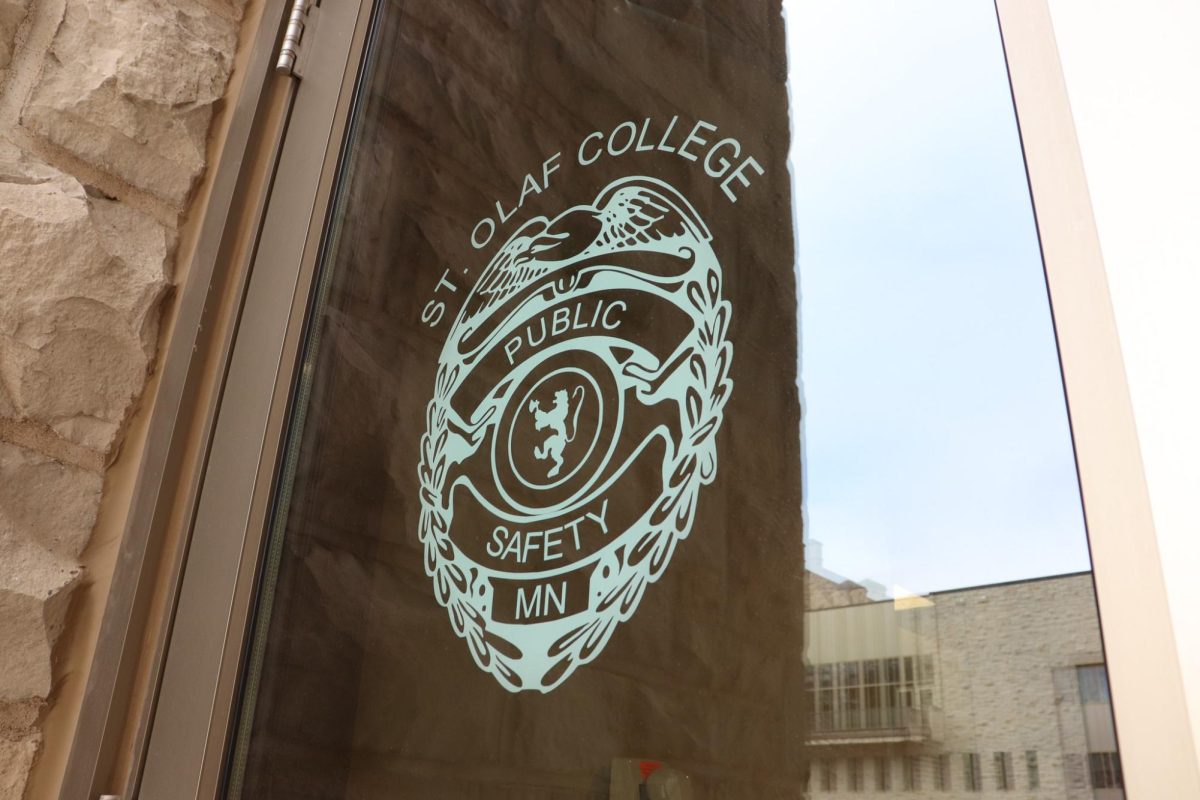The Board of Regents Student Committee BORSC has launched an initiative to facilitate communication between students and the Board of Regents. Called the “Talk Box,” BORSC’s new enterprise invites students to anonymously submit comments or questions – via Oleville or on old-fashioned paper – about some aspect of St. Olaf. Members of BORSC will then find answers to those questions and responses to those comments.
Talk Box – as well as other recent BORSC initiatives – are meant to bridge the perceived gap between the interests of the Board of Regents and current students. Evan Davis ’15 currently serves as BORSC coordinator, and has worked this year to restructure BORSC so that its role is more relevant to Regents and students alike.
“The Board of Regents is a 35-member committee of mostly alumni who are highly dedicated to the college,” Davis said. “It’s very similar to a business model, and most higher education institutions – with the exception of big state schools – use this same model.”
“They decide things like which profs get tenure, and appoint the president,” Katelyn Regenscheid ’15, who serves as the Marketing and Communications Officer for BORSC, said. She explained that board members are appointed to six-year terms and have varied roles. Current Regents choose the new appointees, and a recent graduate joins the board each year as well. The board meets three times each year and focuses its attention on three specific issues at a time.
Because the Regents address a few topics in detail each year, BORSC underwent a restructuring beginning this academic year to align itself with the system the Regents use.
“BORSC used to be a committee that would research one big topic relevant to campus,” Davis said. “Last year, we decided to take on diversity – in the broadest sense.” However, when the Board of Regents was focused on sexual assault and BORSC was focused on diversity, conversations between the groups were less productive than everybody hoped.
“They really want student feedback and opinion, but it’s not really helpful if we are saying things that aren’t productive,” Regenscheid said. “It’s just a little more strategic and a little more effective if we are talking about the same issues.” She said that the Board of Regents and BORSC do some negotiation about what the plenary issues are; they are not merely dictated by the Regents for students to accept.
“We do have to take a step back as students and realize that the issues that are ours right now can’t be the only issues they are focused on,” Davis said. “We have to try to balance what our urges are right now with what is strategic and possible in the long term.” This year’s topics of focus are refreshing the strategic plan, faculty governance and marketing and communications.
“What we are doing now is being more project-oriented,” Davis said. Rather than focusing on one year-long project, BORSC aims to create platforms for communication between students and Regents on a variety of subjects. This is where Talk Box comes in.
“The Talk Box is an opportunity for students to give feedback that we are going to look at and use for conversations with the Regents,” Davis said. “At the same time, it will educate students about what happens at our school.”
Students can find birdhouses in Buntrock Commons with slips of paper next to them. They can write down any question or comment and slide it into the box. Alternatively, students can visit oleville.com and submit an anonymous comment via the Web site.
The current Talk Box theme is “myths and rumors.” Students are encouraged to submit any rumors they have heard to the Talk Box. Then, members of BORSC will do their research and find answers to those questions.
“A lot of times, people say, ‘Well, how am I even supposed to get answers about that?'” Regenscheid said. Talk Box was launched to demystify “the administration” and to help students find the answers they are looking for. After “myths and rumors,” BORSC will announce more Talk Box themes.
“In coming weeks, we will be asking questions that directly relate to what the Regents are talking about,” Hannah Fedje-Johnson ’16 said, who was recently elected as BORSC coordinator for the 2015-2016 academic year. BORSC members said they are looking forward to not only educating students, but also making sure that students’ voices are heard by the Regents.
“We know we’re going to get lots of responses about gender-neutral bathrooms and about Black Lives Matter, because that’s what students care about,” Regenscheid said. “We can then tell the Regents that that’s what students are talking about.”
“The project, so far, is doing exactly what we wanted,” Davis said. “Some questions are serious and some are less serious. We will take everything seriously and give students a legitimate answer.”
“We’re actually more excited about some of the more controversial ones,” Fedje-Johnston said.
The next step for BORSC is to organize the submissions into categories, and then publish the answers on Oleville. Students can – and should – join in the conversation by visiting oleville.com/borsc and clicking on “Talk Box.”
GraphicCredit:ETHAN BOOTE/MANITOU MESSENGER





